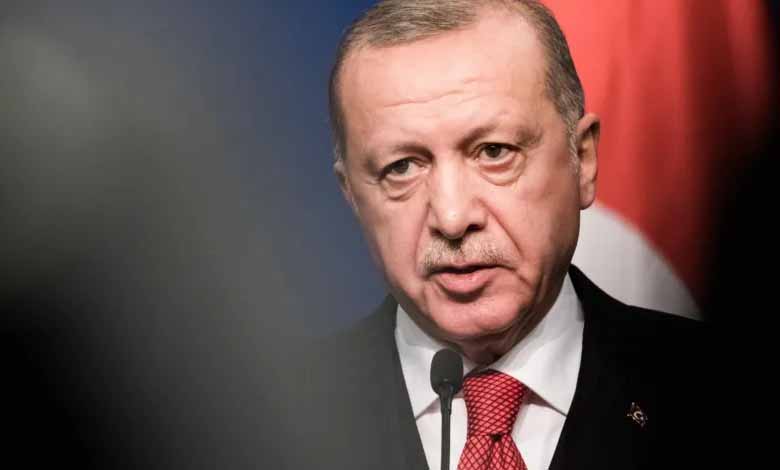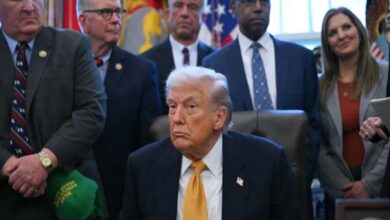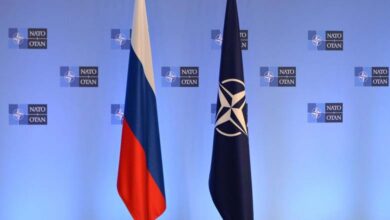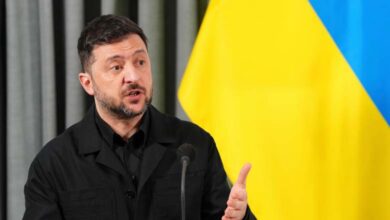Erdogan Takes Another Swipe at Lira with His Defense of Low Rates

Turkey’s beleaguered lira skidded 4% on Friday after President Recep Tayyip Erdogan doubled down on his low-rates policy that has been widely criticized, capping a volatile week in which the currency plunged to all-time lows.
Erdogan’s promise to ease monetary policy and defend Turks from being “trampled” by high interest rates sent the lira to as far as 12.628 versus the dollar in a late-session slide at 1428 GMT.
The currency has lost as much as 45% of its value this year, with around half of those losses since the start of last week alone.
It hit 13.45 in a historic 15% selloff on Tuesday that was triggered by two other speeches by Erdogan in the last 10 days in which he has defended the central bank move to slash its policy rate to 15%, despite inflation of 20%.
The lira’s spiral has upended household spending plans, disrupted the supply of some medications and briefly halted the sales of some other imports like cellular phones.
Many economists and opposition lawmakers have called for an immediate policy reversal and elections, while the government is increasingly standing by Erdogan’s push for monetary stimulus despite the risks, including a sharp erosion of Turks’ earnings.
The deputy finance minister and central bank said that inflation – which is expected to rise higher – would soon settle and that the monetary easing had helped boost commercial loans.
“These interest rates will come down. We will not let our people or our farmers be trampled by interest rates,” Erdogan said, adding Turkey is committed to its new economic policy that stresses production, employment and a current account surplus.
Speaking in the Aegean coastal province of Izmir, Erdogan repeated that he opposes the notion of support from the International Monetary Fund or World Bank.
“It is hard to see how Turkish policymakers will come out of this given an unwillingness to engage in more orthodox policies,” said Magdalena Polan, principal economist, Central Europe and Middle East, PGIM Fixed Income.
She said measures would have to be taken: either a rate hike and more credible policies; or non-orthodox steps as used in the past – the risk of which was increasing.
Economists say the currency depreciation will send inflation, already four times the official target, toward 30% next year. It will hit a three-year high of 20.7% in November, a Reuters poll found.
No turning back
Officials have told Reuters that Erdogan had ignored appeals, even from within his government, to reverse policy. Instead, he has defended the stance and vowed to win an “economic war of independence”.
Deputy Finance Minister Nureddin Nebati said “there is no issue” with the policy rate lower than the inflation rate, despite the deeply negative real yield.
“We need to evaluate Turkey’s economy from a bigger window, rather than a narrow perspective only taking the exchange rate as a basis,” he said late on Thursday on Twitter.
Revenue earned from the low rates would be directed to key imports such as energy, Nebati added. “The manipulative attacks waged on the Turkish lira over our low rate policy will not seriously damage our economy.”
Nebati’s boss, the Treasury and Finance Minister Lutfi Elvan, who is seen as following orthodox policy, has kept mostly out of the spotlight in recent months and there has been speculation he could be ousted. The Palace has not commented.
Asked about the speculation, Meral Aksener, leader of the opposition IYI Party, told Turkey’s FOX TV that Nebati appears likely to be succeed Elvan, which could again undercut the lira.
Central Bank Governor Sahap Kavcioglu met banking sector officials on Thursday evening and discussed the rate cuts with them, saying they were working in harmony with the sector.
On Friday, the central bank said revisions in its monetary policy stance since September had started a recovery in commercial loan growth.












